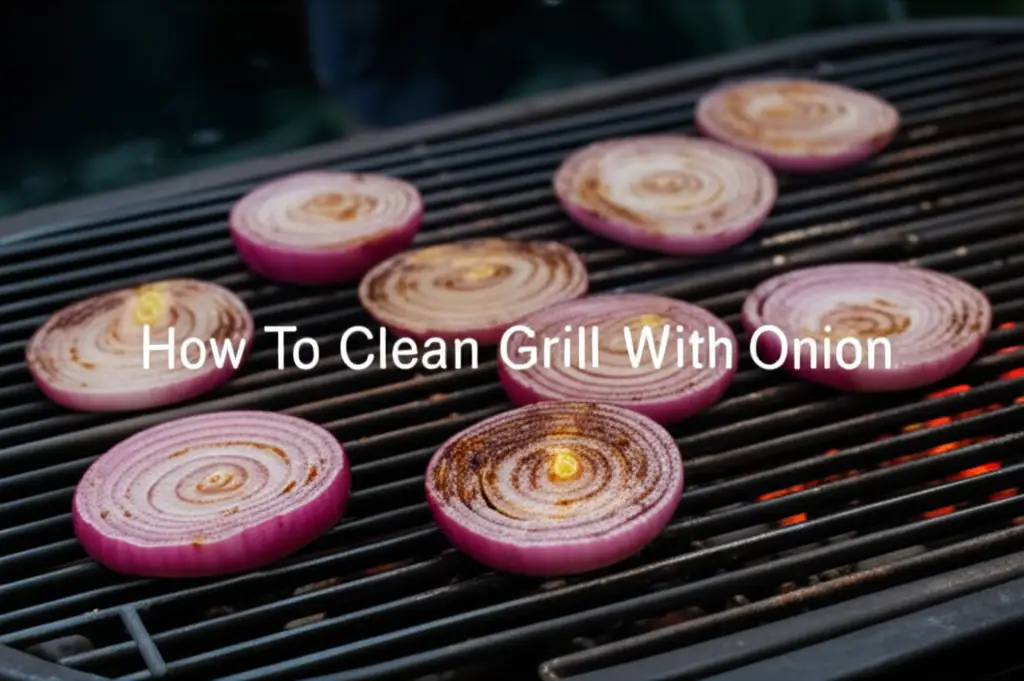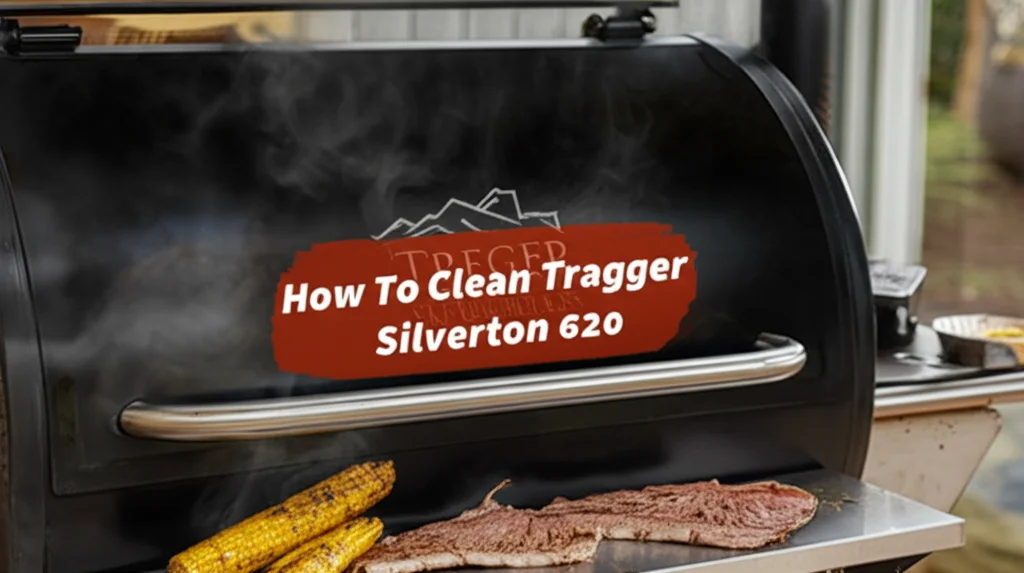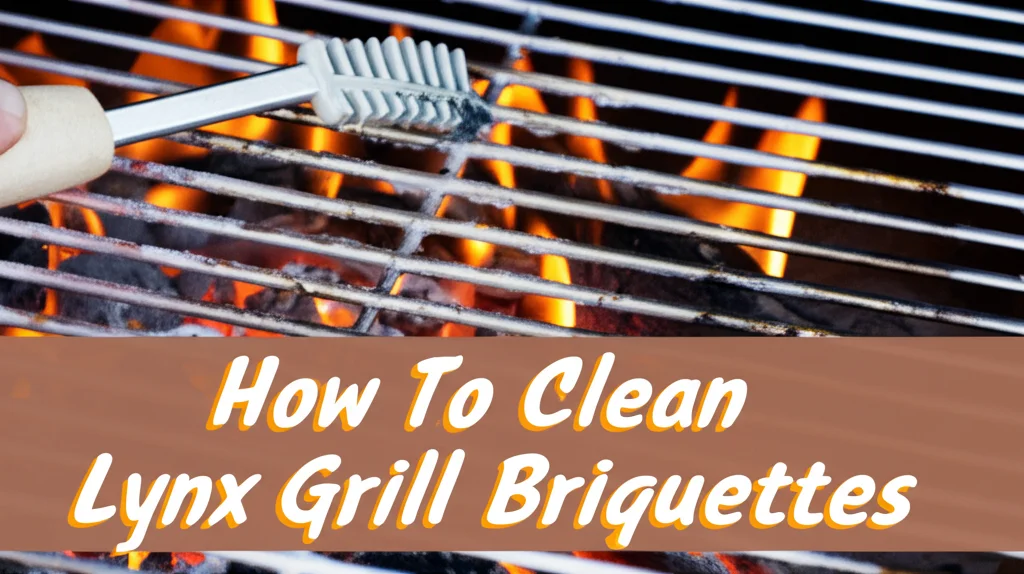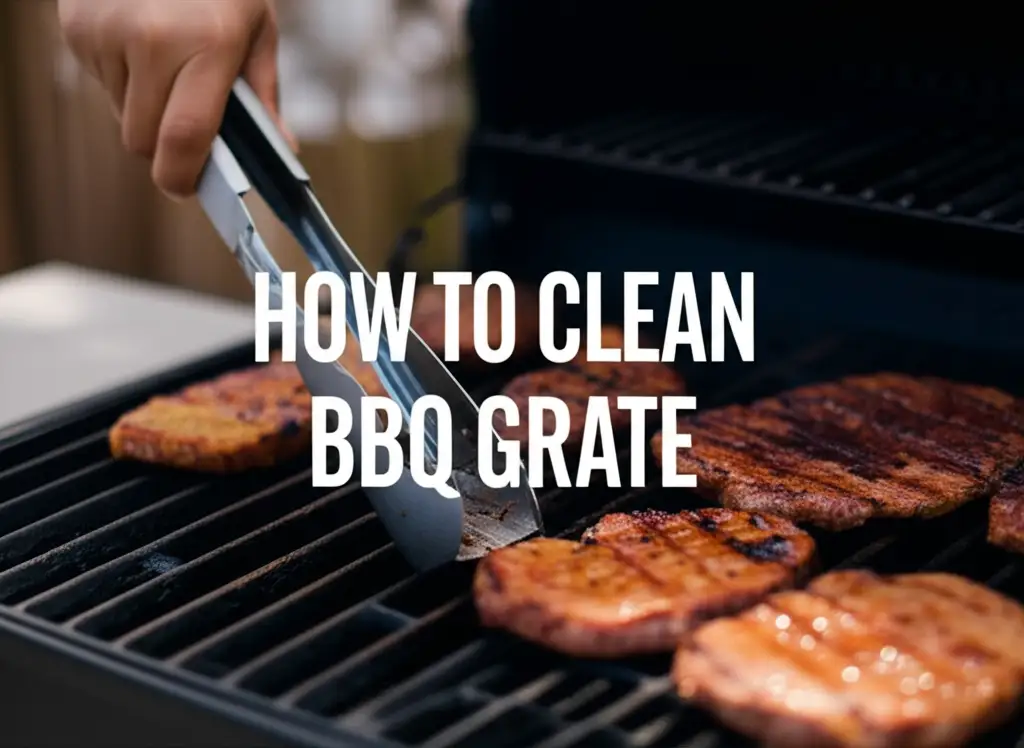· Grill Cleaning · 16 min read
How To Clean Charcoal Grill
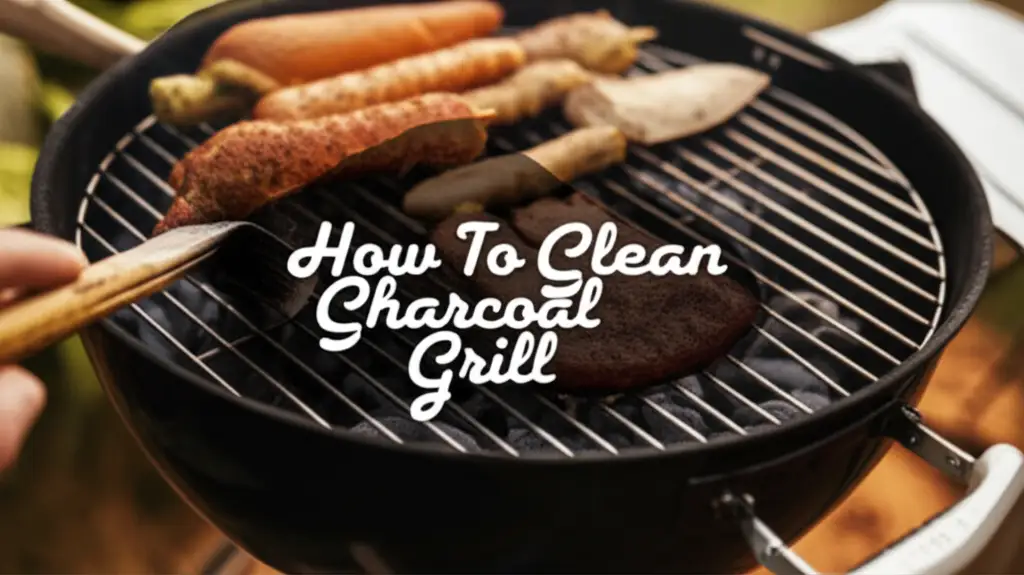
Mastering Your BBQ: How To Clean Charcoal Grill Effectively
A backyard barbecue is a wonderful thing. The smoky aroma, the sizzling food, and the good company make for lasting memories. But after the feast, you face a common task: cleaning your grill. Specifically, knowing how to clean a charcoal grill is important for every grill master. A clean grill cooks better. It also lasts longer and prevents unwanted flavors in your food.
This guide provides a full approach to cleaning your charcoal grill. We will cover essential tools, step-by-step methods for grates and the grill body, and tips for deep cleaning. You will learn about preventing rust and keeping your grill ready for its next use. Following these simple steps ensures your charcoal grilling experience remains excellent. Get ready to transform your post-BBQ routine.
Takeaway
To ensure your charcoal grill always performs best and lasts long, remember these key points:
- Clean Grates After Every Use: Remove food bits and grease while the grates are warm. This stops buildup.
- Empty Ash Regularly: Ash holds moisture and causes rust. Empty it after each cool-down.
- Deep Clean Periodically: Give your grill a thorough wash a few times a year. This removes stubborn grime.
- Protect from Elements: Cover your grill when not in use. This prevents rust and damage.
How do you clean a charcoal grill?
To clean a charcoal grill, first empty cool ashes and scrape grill grates. Next, wash grates with soap and water or a specialized cleaner. Wipe down the grill bowl and lid. For deep cleaning, remove all components and scrub thoroughly. Dry all parts well before reassembling. This ensures your grill remains in top condition.
Why Clean Your Charcoal Grill? Benefits of Regular Care
Cleaning your charcoal grill is more than a chore; it is an important part of grill ownership. A clean grill offers many benefits. It enhances food taste, extends grill lifespan, and improves safety. Regular cleaning makes a noticeable difference in your cooking. I know from experience that a dirty grill can ruin a good meal.
Food cooked on a dirty grill often has a bitter taste. Old food bits, grease, and ash cling to the grates. These residues transfer to your fresh food. This adds burnt, stale flavors that hide the true taste of your meat and vegetables. Cleaning ensures your food tastes pure and delicious. You want to taste the marinade, not last week’s burnt burger.
Grease and carbon buildup also block proper heat distribution. This causes uneven cooking. You might get parts of your food burnt while other parts remain undercooked. A clean grill allows heat to flow evenly. This results in perfectly cooked meals every time. Your food will cook through consistently.
Regular cleaning also extends the life of your charcoal grill. Grease and ash are corrosive. They can lead to rust and damage over time. Rust eats away at metal parts, making them weak. This can lead to costly repairs or needing a new grill sooner. I have seen grills rust through much too quickly due to neglect. Keeping it clean saves you money in the long run. It protects your investment.
Finally, a clean grill is safer. Large grease buildups can cause flare-ups or even grease fires. These fires are dangerous and can damage your grill or surroundings. Removing grease and ash reduces fire risks. It ensures safe grilling for you and your family. Your peace of mind matters.
Essential Tools and Supplies to Clean Your Charcoal Grill
Before you start cleaning your charcoal grill, gather the right tools. Having everything ready makes the process easier and more effective. You do not want to stop midway to search for a missing item. I always lay out my supplies before I begin. This saves time and frustration.
A stiff-bristled grill brush is your first tool. It removes charred food and grease from grates. Choose one with strong bristles that can withstand heavy scrubbing. Some people worry about bristles coming off. You can also clean your grill without a brush if you prefer. You might use a wadded-up aluminum foil ball held with tongs or half an onion.
For tough messes, a grill scraper or putty knife helps. These tools remove hardened carbon deposits that brushes cannot handle. They work well on the cooking grates and the inside of the grill bowl. I find a good scraper invaluable for sticky, burnt-on food. It gives extra leverage.
You will need a bucket of warm, soapy water. Dish soap works well for cutting through grease. A sponge or non-abrasive scrubber helps clean the grill’s exterior and less soiled areas. You might also want a separate bucket for rinsing. I use a dedicated bucket for grill cleaning only.
Heavy-duty gloves are important for protecting your hands from grease, dirt, and cleaning solutions. Your hands will get dirty. Safety glasses can protect your eyes from debris, especially when brushing vigorously. I always wear gloves to avoid getting my hands greasy.
For the grill’s exterior, a microfiber cloth and a mild degreaser or stainless steel cleaner (if applicable) are useful. This helps the outside of your grill look as good as the inside. If your grill is black, you might want specific products for how to clean the outside of a black grill. Finally, a shop-vac or dustpan and brush help remove loose ash. This makes ash disposal quick and clean.
Step-by-Step: How to Clean Charcoal Grill Grates
Cleaning your charcoal grill grates is the most frequent and important part of grill maintenance. These grates hold your food. Keeping them clean ensures great flavor and even cooking. I clean my grates after every use. It makes the next grilling session a breeze.
Cleaning Warm Grates
The best time to clean grates is when they are still warm, but not hot. After cooking, let the grill cool down for a few minutes. The heat helps loosen food particles and grease. This makes scraping much easier. If you wait until they are cold, the grime hardens.
First, use a stiff-bristled grill brush. Scrape away any food bits stuck to the grates. Apply firm pressure. Work across each grate bar. Some prefer to use an aluminum foil ball held by tongs. This method helps clean grill grates with aluminum foil. This can be a good alternative to a brush. Make sure all visible food residue comes off.
For stubborn spots, flip the grates over and clean the underside. Sometimes, more gunk collects there. A bit of elbow grease here makes a difference.
Deep Cleaning Grates (Every Few Uses)
Periodically, your grates need a deeper clean. Remove the grates from the grill. If they are cast iron, you will follow a specific process. Learn how to clean cast iron grill grates separately. For porcelain or ceramic grates, the process is similar. You can find detailed steps on how to clean porcelain grill grates or how to clean ceramic grill grates.
Soak the grates in a large bucket or tub filled with warm, soapy water. Use a strong degreasing dish soap. Let them soak for at least 30 minutes, or longer for very dirty grates. This soaking period loosens stubborn grease and carbon buildup. I sometimes let them soak for an hour or more if they are really grimy.
After soaking, scrub the grates thoroughly with a heavy-duty sponge or scrubber. A grill scraper can help with any remaining hard spots. Rinse the grates completely with clean water. Ensure all soap residue is gone.
Finally, dry the grates completely. If you have cast iron grates, apply a light coat of cooking oil to prevent rust. This re-seasons them. Even if you use alternative cleaning methods, like learning how to clean a grill with onion, drying is always important. Proper drying prevents rust, especially for cast iron. Always store dry grates.
Cleaning the Grill Bowl and Ash Catcher: A Must-Do Task
The grill bowl and ash catcher are important parts of your charcoal grill. They collect ashes and grease. Cleaning them regularly keeps your grill efficient and safe. It also helps prevent rust. I make sure to empty my ash catcher after every cooking session. It prevents moisture buildup that causes rust.
Emptying the Ash Catcher
Always wait for the grill to cool completely before handling ashes. Hot ashes are a fire hazard. Once cool, remove the ash catcher. This might be a removable pan or a bucket at the bottom of your grill. Carefully empty the ashes into a metal can. Never put ashes directly into plastic trash bags or bins. They can retain heat and ignite.
After emptying, scrape out any remaining ash or debris from the catcher. A small brush or scraper works well. If your ash catcher is particularly dirty, you can wash it with warm, soapy water. Rinse it thoroughly and dry it completely before putting it back. Moisture is the enemy of metal.
Cleaning the Grill Bowl
The grill bowl is the main body where the charcoal sits. Over time, grease and carbon can build up inside. This buildup can affect airflow and lead to rust. First, remove the cooking grates and the charcoal grate. Brush away any loose ash or debris from the inside of the bowl. A shop-vac can be very effective here for removing fine ash particles.
For stubborn grease, use a grill scraper or a non-abrasive scrubber with warm, soapy water. Scrub the interior surfaces of the grill bowl. Pay attention to the areas around the vents and damper. These spots can accumulate thick grease. If you notice any rust, you might need to address how to clean rusty grill grates, and apply the same principles to the grill bowl.
Rinse the inside of the grill bowl with clean water. You can use a hose for this if your grill is outside. Ensure all soap residue is gone. Just like the ash catcher, dry the grill bowl completely. You can let it air dry in the sun or wipe it down with a cloth. Leaving any moisture can lead to rust. Reassemble the components only when everything is perfectly dry. This systematic approach keeps your grill performing its best.
Deep Cleaning Your Charcoal Grill for Long-Term Performance
A regular clean after each use is good, but your charcoal grill needs a deep clean a few times a year. This thorough cleaning removes hidden grime, prevents rust, and keeps your grill performing optimally. It is a more involved process, but it pays off in longevity and cooking quality. I usually pick a sunny weekend for a full deep clean.
First, disassemble your grill as much as possible. Remove the lid, cooking grates, charcoal grate, ash catcher, and any internal components. This allows full access to all surfaces. Lay everything out on a protective surface like old newspapers or a tarp. This keeps your patio clean.
Use a heavy-duty degreaser or a strong mixture of dish soap and hot water. Spray or apply the solution to all interior surfaces of the grill bowl and lid. Let it sit for 15-30 minutes. This gives the cleaner time to break down tough grease and carbon. For especially stubborn areas, you might need a dedicated grill cleaner.
For the grates, if you haven’t already, give them a deep soak as discussed previously. Scrub the grates with a wire brush or heavy-duty scrubber. Pay attention to all sides of each bar. If you have different types of grates, refer to specific guides like how to clean cast iron grill grates or how to clean porcelain grill grates.
Use a sturdy brush or scraper to scrub the inside of the grill bowl and lid. Get into all corners and crevices. Remove any flaking paint or rust that you find. If you discover mold, learn how to clean mold off grill promptly. These build-ups affect air circulation and flavor. Clean the exterior of your grill as well. This includes the legs, wheels, and side tables. A general purpose cleaner or a stainless steel cleaner works well here. For black grills, use specific products for how to clean the outside of a black grill.
Rinse all components thoroughly with clean water. Ensure no cleaning solution remains. Any residue can affect food taste or cause corrosion. Dry every single part completely before reassembling. Air dry in the sun, or use a clean cloth. Rust forms quickly on wet metal. Reassemble your grill once everything is bone dry. This comprehensive cleaning ensures your charcoal grill is ready for many more delicious meals.
Preventing Rust and Odors in Your Charcoal Grill
Rust and unwanted odors are common problems for charcoal grills. These issues can ruin your cooking experience and shorten your grill’s life. But with simple steps, you can avoid them. I have learned that prevention is much easier than fixing rust.
Preventing Rust
Moisture is the primary cause of rust. Always ensure your grill is completely dry after cleaning or after any rain. Do not cover a wet grill. This traps moisture inside. Let it air dry thoroughly before putting on the cover.
Store your grill in a dry place. A garage or shed is ideal. If it must stay outside, use a high-quality, weather-resistant grill cover. A good cover protects against rain, snow, and humidity. It also shields your grill from dust and debris. Check the cover regularly for tears or holes.
For cast iron grates and other susceptible metal parts, a thin layer of cooking oil provides protection. After cleaning and drying, wipe them down with a paper towel lightly oiled. This creates a barrier against moisture. For rusty parts, follow guidance on how to clean rusty grill grates immediately. Addressing rust spots early prevents them from spreading.
Empty the ash catcher after every use once the ashes are cool. Ash holds moisture, which promotes rust in the bottom of your grill. Leaving ash in the grill is one of the quickest ways to encourage corrosion. I never leave ashes overnight.
Preventing Odors
Unpleasant odors often come from old food residue and grease buildup. Regular cleaning of your grates, grill bowl, and ash catcher is the best defense. Burnt-on grease creates a stale, rancid smell that permeates your next meal.
Ensure good airflow. Clean the vents and dampers on your grill lid and bowl regularly. Blocked vents can trap smoky odors and moisture. Proper airflow helps gases escape during cooking and drying. This prevents odors from lingering.
Use fresh charcoal. Old or damp charcoal can produce off-smells when burned. Store your charcoal in a dry, sealed container. This keeps it fresh and ready for use. If you notice mold on your grill, address how to clean mold off grill promptly. Mold creates a musty smell and is unhealthy.
If your grill has a persistent odor, try a “burn-off.” Light a full load of charcoal and let it burn for 30-60 minutes with the lid closed. The high heat helps to carbonize and burn off residual grease and odors. This is a good practice before a deep cleaning or before the first use of the season. A well-maintained grill is a joy to use.
Quick Maintenance Tips for Your Charcoal Grill Between Cooks
You do not need a full deep clean every time you use your charcoal grill. Regular, quick maintenance between cooks keeps your grill in great shape. These simple habits save you time in the long run. They also ensure your grill is always ready for the next spontaneous BBQ.
After Each Cook
Once you finish cooking, let the grill cool down a bit. While the grates are still warm, but safe to touch, scrape them with your grill brush. The heat helps loosen stuck-on food. This removes most of the residue before it hardens. You can also use methods to clean your grill without a brush. I always do this while the grates are still warm. It makes a big difference.
After the grill cools completely, empty the ash catcher. Leaving ash in the grill can cause rust due to moisture absorption. It also impacts airflow. Make this a habit every time. My grill stays much cleaner and rust-free because of this simple step.
Wipe down the exterior of your grill. A damp cloth can remove grease splatters and smudges. This keeps your grill looking good. If your grill is black, learn how to clean the outside of a black grill. This simple wipe-down prevents grime from building up.
Before Each Cook
Before lighting the charcoal, quickly inspect the grates. If there is any dust or debris, give them a quick brush. This ensures a clean cooking surface. I usually do a quick scrape every time.
Ensure the vents and dampers are clear. Blocked vents affect airflow and temperature control. Use a small brush or a paper towel to clear them if needed. Proper airflow is vital for charcoal grilling.
If you have cast iron grates, give them a quick re-seasoning. Wipe a very thin layer of cooking oil over the clean grates. This maintains their non-stick properties and protects against rust. You can also season porcelain or ceramic grates. This prepares them for optimal cooking.
These small, consistent actions maintain your charcoal grill. They prevent major issues and keep your grill ready for action. You will spend less time on deep cleaning and more time enjoying delicious food. Consistent care prolongs your grill’s life.
Conclusion
Cleaning your charcoal grill might seem like a chore. However, it is an important habit for any grilling enthusiast. We have covered the many reasons why it matters. A clean grill delivers better-tasting food. It also lasts longer, saving you money and effort in the long run. Regular maintenance prevents rust and ensures safe operation.
We explored the right tools for the job. From grill brushes to degreasers, having the correct supplies makes the task simple. We walked through cleaning the grates, the grill bowl, and the ash catcher. Each component plays a part in your grilling success. Knowing how to deep clean your charcoal grill ensures it performs at its best season after season. Remember to prevent rust and odors with good storage and airflow. Implementing quick maintenance tips between cooks keeps your grill ready for its next session.
Embrace these cleaning practices. Your grill will thank you with perfectly cooked meals every time. It will also serve you for many years. Take pride in your grill and its upkeep. So, after your next delicious barbecue, take a few moments to clean your charcoal grill. You will enjoy the rewards with every future cookout. Get ready to grill with confidence.
- charcoal grill cleaning
- grill maintenance
- bbq cleaning
- grill care
- deep cleaning grill

